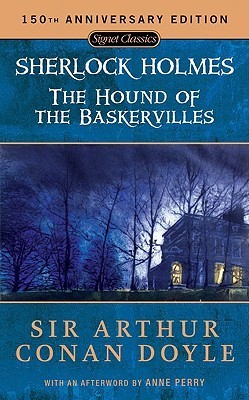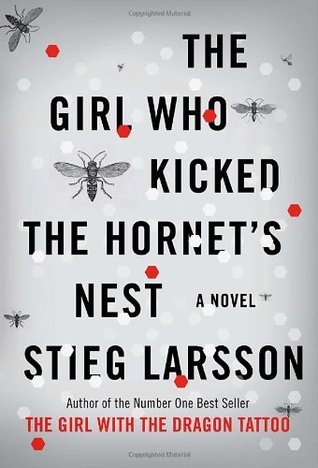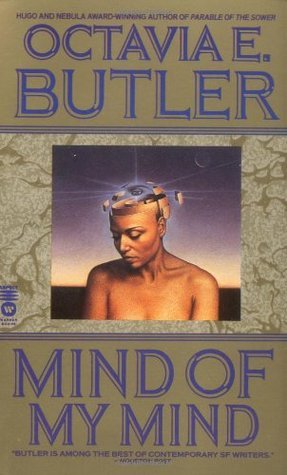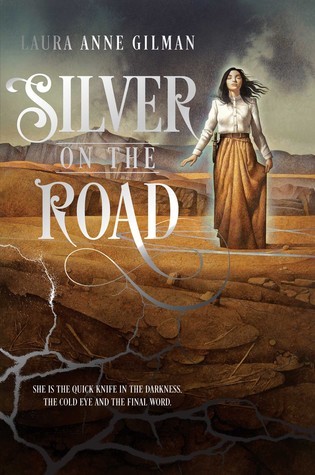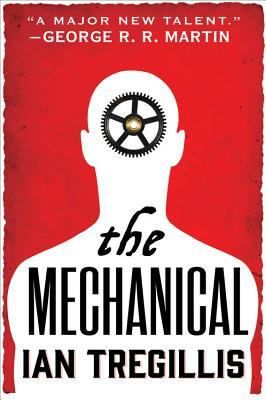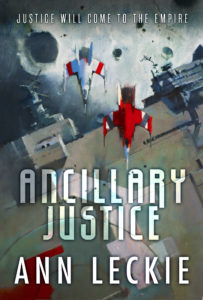Full of cool ideas, but with a frustrating writing style.
In an alternative 1926, the Dutch have taken over the world using armies of alchemical slaves. Magical compulsions keep the Clakkers in line. What could go wrong?
Jax, a household Clakker, inevitably comes into contact with a lens that frees him from his geasa. He has to run up a steep learning curve to deal with his newfound freedom. Meanwhile, Berenice Charlotte de Mornay-Périgord, spymistress of what’s left of France, dreams of overthrowing the Dutch Empire. Her attempt to reverse-engineer a military Clakker ends in disaster. Jax and Berenice’s adventures bring them together and into an uneasy alliance.
There’s also Visser, who should never have been a viewpoint character in the first place. More on him later.
The Mechanical is full of super cool ideas. Dutch alchemical robots. Robots versus glue. A secret language for slaves. A clockwork Green Lantern. Weaponized Calvinism. I like a book that sends me to Wikipedia, and The Mechanical had me looking up Huygens, Spinoza, and what the pineal gland actually does (it makes melatonin).
Tregillis squanders that potential with an overwrought writing style. He goes in for eyeball kicks and cheap grossouts, while I am a subtext and quiet horror kind of gal. He does scare me when he mentions in passing that “Don’t harm humans” is the lowest priority of the Clakkers’ hierarchical metageasa. He lets me figure out the implications of that for myself. But most of the time I’m treated to stuff like this:
The central courtyard of the inner keep looked and smelled like a charnel house. Berenice struggled to make sense of what she saw through the pink haze of one blood-clotted eye and the mounting fog of pain. A crumpled silver funicular lay amidst the crushed rubble of the ground station, its windows shattered and empty. Bodies strewn like wreckage. Parts and whole. Blood puddles.
It’s not scary because I know exactly what’s going on. Most of the book is gratuitous; I figured out pretty early that I could skip to the end of the fight scenes and the chase scenes to see who makes it and I wouldn’t miss much.
When body fluids aren’t spattering on walls, Tregillis raises an interesting philosophical question about free will. The characters regard free will and freedom as the same thing. Even Jax himself thinks enslaved Clakkers have no free will, and it is somehow granted when the geasa are taken away. But we can see him struggle against his geasa (and fail) and say whatever he wants to his friends because it never occurred to his makers to stop him. The Clakkers aren’t missing anything, they’re willed beings with shackles added. I really hope that Tregillis is working up to a point that free will doesn’t mean getting to do what you want.
Jax is too clever for belief. He’s lived for 118 years with his every motion spelled out for him, so I expected him to feel overwhelmed by having to make so many decisions so fast. But no, he runs the entire city of New Amsterdam a merry chase, making all the right decisions, then he hijacks an airship.
While he clings to the belly of the thing in midair he decides he needs to recruit the Clakker mind inside it to his side so they can both escape. He thinks the eyes are the windows of the soul and slams his magic lens into the airship’s eye. Which works. Earlier, he got his freedom when the lens got lodged inside his chest. And he hadn’t taken the lens outside of himself yet, so he had no good reason to think he could survive doing that. And in other parts of the book, he’s not sure if enslaved Clakkers even have souls.
The Dutch people don’t make sense, either. They go out of their way to pick on Clakkers even when they’re working properly. All of the people. Jax even notes that he thinks humans are all the same. He should be wrong. I’d expect to see at least a few Dutch people take them for granted, try to take them apart and get arrested, fetishize them, demonize them, fight for the abolition of slavery, but they all seem to react to Clakkers the same way. The Dutch Empire doesn’t have to work hard at their totalitarian state at all.
Meanwhile, Luuk Visser is a blithering idiot. He’s a secret Catholic priest, working as a spy for the French from within the Hague. He learns that most of his spy cell has been executed and one woman taken prisoner. In his guise as a Protestant pastor, he asks to see the prisoner and then kills her to keep her knowledge out of Dutch hands. Reasonable enough. But then the moron tries to go home. Of course Dutch agents are waiting for him there and take him prisoner.
And then he gets enslaved under geasa and turned into a machine for the Dutch. Since he can’t make decisions, he stops being an interesting character. I would rather have Jax and Berenice hear rumors that Something Very Bad happens to Visser, then later witness the zombie-like Visser thing. That would have been scarier.
Which makes Berenice my favorite character. She’s the only main character who’s a mere mortal, she’s not too good or too evil, and above all, she makes sense. She violates medical ethics after a cold calculation that her work will benefit France. When she brings a military Clakker into a French fortress to study it, it breaks free and kills over thirty people. Does she mope? She figures out a man sabotaged her glue and hunts him down. And she has a nuanced view of Clakkers. She accepts they’re sentient, but she’s still willing to take advantage of them. Her alliance with Jax could be a lot of fun.
I’m excited to see where Tregillis is going with all the neat ideas in this series, but I think I will skip to the end to see who makes it.



